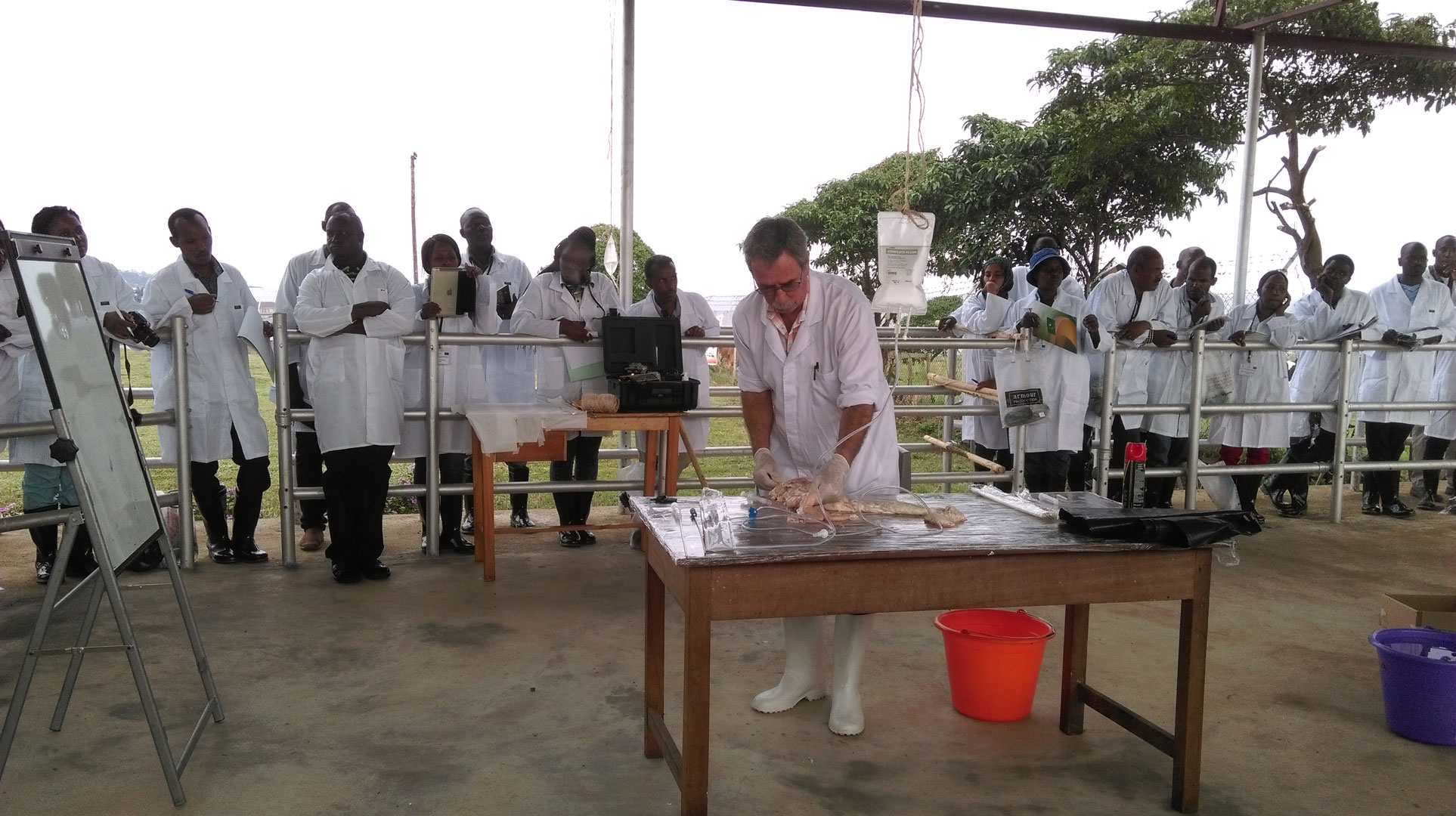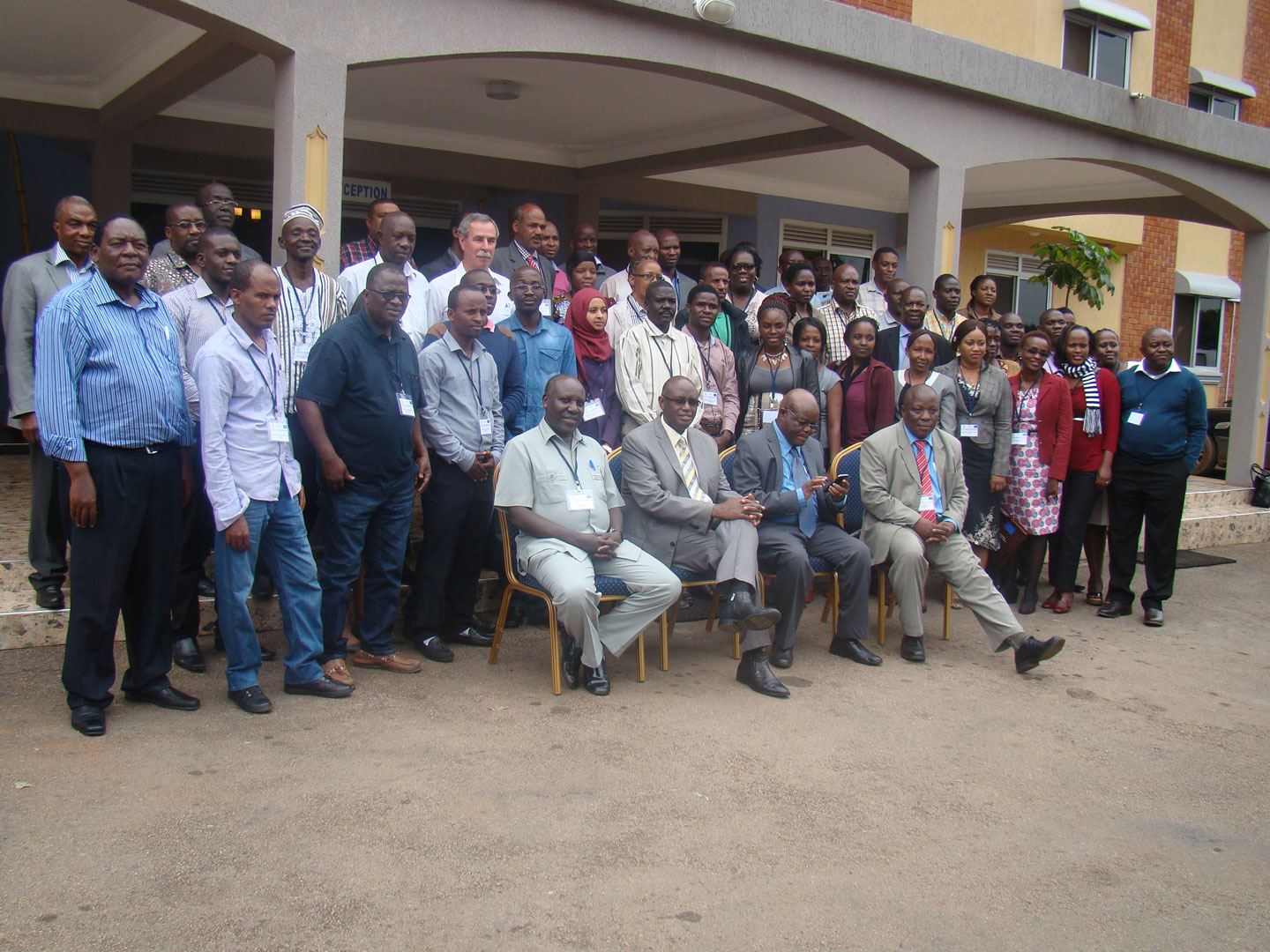Training on handling of animal genetic materials for Anglophone countries

The conservation and sustainable utilization of biological diversity as well as the fair and equitable sharing of the benefits arising out of the use of genetic resources including animal genetic resources (AnGR), are important for the global community and hence should be actively promoted. The African Union-Interafrican Bureau for Animal Resources (AU-IBAR) Genetics project “Strengthening the Capacity of African Countries to Conservation and Sustainable Utilisation of African Animal Genetic Resources” is currently implementing an activity “Support for the establishment of regional/sub-regional facilities for ex situ conservation, in particular cryogenic storage and establish gene banks for AnGR” which seeks to support the conservation and sharing of animal genetic materials. Under this activity, some gene banks have been identified to serve as potential regional facilities. This activity is in line with the AU-IBAR’s general principles that seek to promote regional cooperation and integration through establishing and strengthening regional initiatives especially on sharing available resources, facilities and exploiting regional complementarities for the in situ and ex situ conservation of AnGR.
A training workshop was convened by AU-IBAR from 18th to 22nd January 2016 in Entebbe, Uganda and was officially opened by the Honourable Minister of State for Animal Resources and Industry, Lt. Col. Bright Rwamirama.
The training was conducted in preparation of the establishment of regional gene banks for the conservation of AnGR in the five regions of the continent. The overall objective of the training workshop was to establish a network of proficient and well-versed technicians, adequately equipped to undertake collection, preparation and transfer of animal genetic materials within their countries and between their countries and the regional gene banks. A total of fifty participants drawn from 19 Member States, namely Botswana, Eritrea, Ethiopia, Ghana, Kenya, Lesotho, Liberia, Mozambique, Namibia, Nigeria, Seychelles, Sierra Leone, South Africa, South Sudan, Sudan, Tanzania, Uganda, Zambia and Zimbabwe were in attendance. The training workshop was facilitated by highly competent trainers from South Africa (Prof. Daniel Barry), Tanzania (Prof. Noel Kanuya) and Uganda (Dr. Daniel Semambo) and representatives from AU-IBAR.

The workshop featured both theoretical and practical sessions on cryopreservation and vitrification. The theoretical training dwelt on basic concepts of semen and embryo collection, procedures of preparation and storage of semen/oocytes, multi-ovulation and embryo transfer (MOET) technique, in-vitro fertilization, bio-security, data processing and management and a brief introduction to legal requirements for transport and transfer of the genetic materials. The practical sessions were undertaken at the National Animal Genetic Resources Centre and Data bank (NAGRC&DB) providing the technicians with hands-on experience on semen collection, embryo flushing and embryology. In addition, draft Standard Operating Procedures (SOPs) were developed by the participants with ten core aspects: Infrastructure, Human resources (Personnel and Educational requirements), Financial requirements, Core Equipment, Type and selection of animals, animal management, Consumables, Bio-security, processes and procedures, documentation and support services. The draft SOPs will be finalized and used as guidelines for the day to day activities of national as well as the proposed regional gene-banks.
The training workshop ended positively with the firm commitment of the technicians to work tirelessly towards ensuring successful conservation of AnGR in their respective national and regional gene banks.
